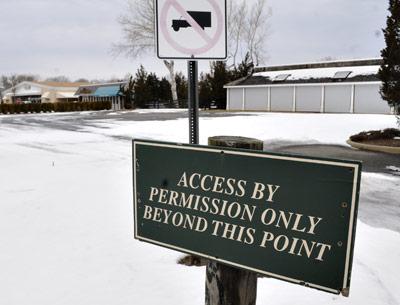7-Eleven Permit Lifted

A building permit for renovations to the former Villa Prince restaurant in Amagansett, where a new 7-Eleven is planned, was rescinded by East Hampton Town’s chief building inspector, Tom Preiato, on Friday after a meeting with town attorneys and planners at which officials decided it had been issued in error.
Though a retail store, including a 7-Eleven, is permitted on the Montauk Highway property, zoned for central business, Elizabeth Vail, the town attorney, said last week that site plan approval from the town planning board would be required before the project could proceed.
Mr. Preiato had given Richard Principi, a contractor and member of the family that owns the property, a building permit on Jan. 30. He confirmed earlier this month that a lease to a 7-Eleven franchisee was planned. Rumors began to circulate about a 7-Eleven there three years ago, arousing vocal opposition similar to that engendered by the first 7-Eleven in town, in Montauk, at around the same time.
Mr. Preiato said that before issuing the permit he had consulted with town attorneys and determined that a switch from one permitted use to another was permissible without a site plan provided the new use would not have higher maximum occupancy. There is no prohibition in East Hampton against chain stores.
“The building permit was issued in error because full consideration of the property’s planning history was originally omitted,” Ms. Vail wrote in an email explaining the decision to rescind the permit. The property “has a complicated history with multiple prior planning reviews and approvals issued over the last 40 years,” she said, including a planned 1983 subdivision, which was not pursued.
Ms. Vail also said an area that was said to be a separate parcel, where there is storage, and where clearing and grading took place at some time in the past, is actually part of the lot where the former restaurant is sited. A section of the town code, she said, requires site-plan approval for clearing and grading.
Ms. Vail noted that prior site plan approval for the property, in 1977, which authorized a restaurant, four retail stores, and a tennis court, was found in 1997 to be void because no improvements had been completed. Nonetheless, the attorney said “further review is required to determine if certain conditions of that original site plan approval were met, particularly regarding the parking requirements on site.”
Site plan review for parking is a likely requirement at this point, she said, noting that a prior property owner had been apprised of some of these issues in a letter from the Planning Department on Feb. 7, 1994.
She noted that the town is entitled under law to overturn a building permit issued in error, and that when an erroneous permit is rescinded a property owner has no vested rights. “The mistaken . . . issuance of a permit does not limit . . . a municipality from correcting errors, even when there may be harsh results,” Ms. Vail wrote.
